
The Business of Fashion
Agenda-setting intelligence, analysis and advice for the global fashion community.

Agenda-setting intelligence, analysis and advice for the global fashion community.
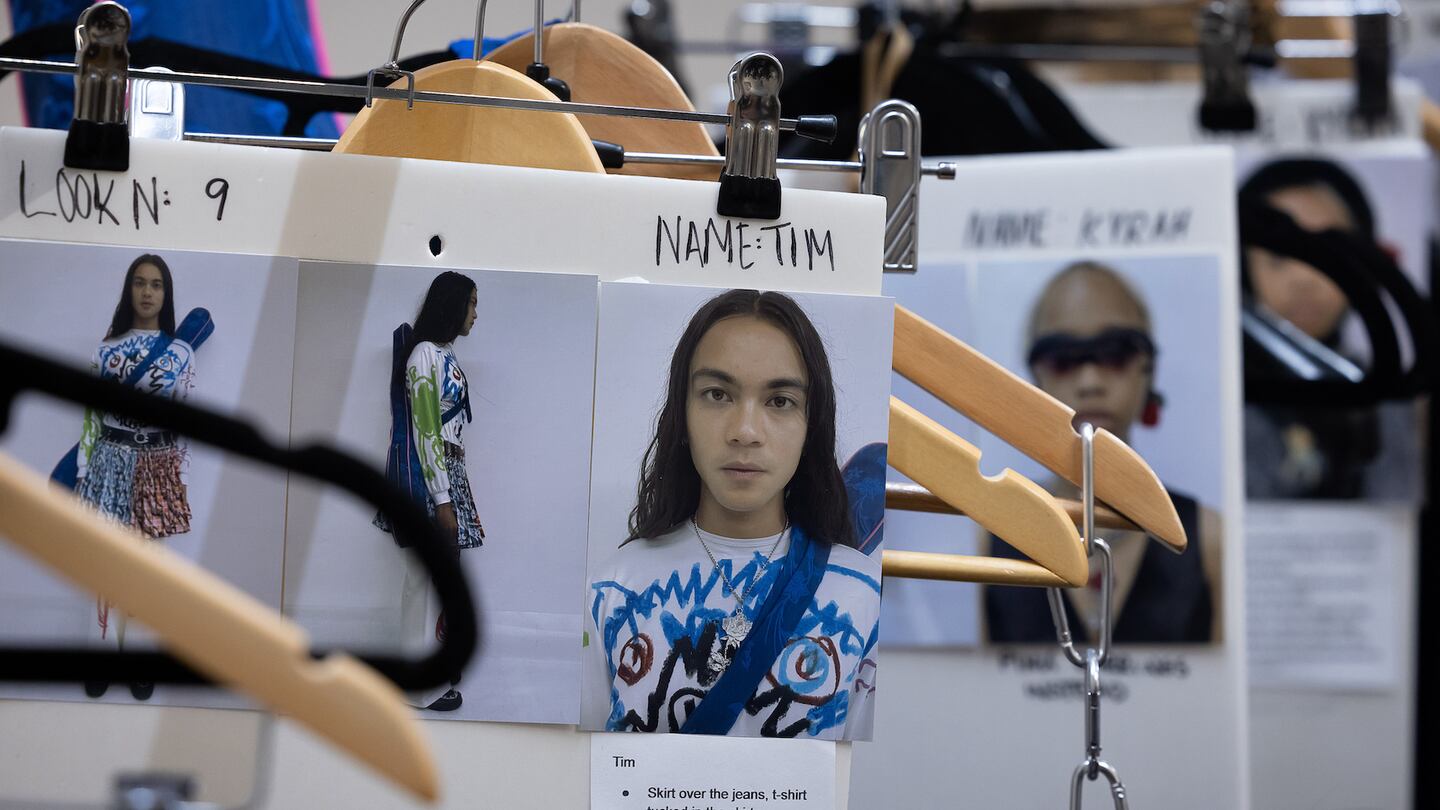
Disclaimer: the interviews with these London Fashion Week designers took place before the passing of Her Majesty Queen Elizabeth II.
London Fashion Week (LFW) returned this week with emerging and established designers presenting their spring/summer 2023 collection from September 16 to 20, 2022. After 2 years of disruption following the pandemic and subsequent lockdowns, London Fashion Week’s on-schedule designers faced renewed challenges with the event coinciding with a national period of mourning in the United Kingdom following the death of Queen Elizabeth II.
Industry heavyweights like Burberry and Raf Simons, who was due to make his LFW debut, announced show cancellations and plans to reschedule. But for emerging talent, who typically lack the flexibility gained from big budgets and large teams, the displacement of shows offers a new hurdle for the season.
As BoF recently reported, the British Fashion Council — London Fashion Week’s organising body — directed attendees to still frequent the scheduled shows “to support designers both in attendance of shows and in coverage of shows in the context of business, creativity, and the stories of the designers behind the businesses who have experienced a period of extreme adversity, facing into more challenging times to come.”
Indeed, in recent seasons, designers have had to adeptly navigate consumer expectations on speed-to-market, supply chain blockages, a climate crisis, a pandemic — all with the backdrop of a bleak economic outlook.
Despite such challenges, emerging design talent have been “punching well above their weight”, as Susie Bubble wrote on BoF following the February shows. An incubator of talent, spearheaded by the likes of the New Gen showroom and Lulu Kennedy’s Fashion East, London consistently produces new names to know — but the challenges they face in launching a business continue to grow.
Here, BoF sits down with design talent from the fashion capital to better understand how they are overcoming market challenges and evolving for success to make their fashion brand work today.
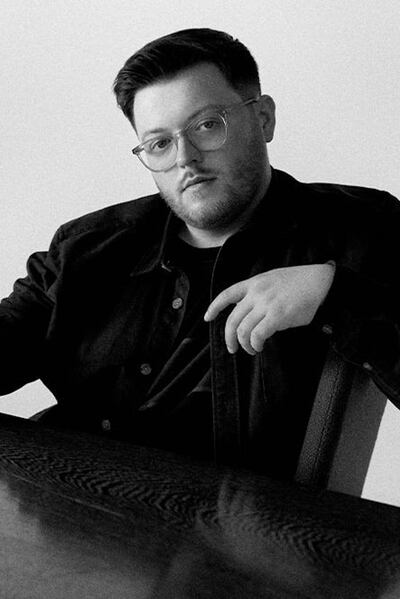
SS Daley
LVMH Prize 2022 winner Steven Stokey-Daley founded his menswear brand, which utilises deadstock fabrics, after graduating from the Westminster Fashion Design BA in 2020. After working in menswear at Alexander McQueen and Tom Ford, his graduate collection was featured in Harry Styles’ music video Golden and in titles such as British Vogue and i-D. SS Daley is sold through the likes of MatchesFashion and Ssense.
How has your business model evolved?
Shortly after my graduate collection, I found myself at home in Liverpool, starting the brand, just using what was around me. My grandma had a cupboard full of embroidered linens and curtains, which we made into shirts. We floated them online, to see if there was any reception for them, and they were super popular. Today, we upcycle tea towels into shirts, which we showed in February and will go into stores next month.
Already, we’ve been on a fast track. I studied a design degree and I had to quickly chameleon into being a business person. We have been focussing on building a wholesale model in the last couple of seasons, which is a huge opportunity to develop the community. From winning the LVMH Prize, what we wanted to invest in was our platform with customers, so we’re starting this process of reinvestment.
What does London Fashion Week mean to you?
Our first experience with fashion week paved the way for what we do now. My partner studied dance, which he stopped doing commercially due to lockdown. Then, I’m lucky enough to have had a business that started and grew exponentially in that same period — it was two completely different realities of that time.
If hundreds of people are travelling in from different countries, how do we make that worthwhile in the context of today?
So, our first show was about the beauty of a British live event, for which we partnered with the National Youth Theatre. From that moment onwards, it’s been about what a live event means for SS Daley, what does theatre mean in the fashion context. It’s also about asking why we need a live event. If hundreds of people are travelling in from different countries, how do we make that worthwhile in the context of today?
We have had conversations about the schedule recently and if that works for us, and we’re planning to shift into our own idea of what the schedule looks like next year. Up until now, we haven’t had a chance to do in-person events other than the Fashion Week shows, and then that feels limited to the group of editors and journalists who are invited. So, we’re organising a few physical, in-person, almost pop-up events for the beginning of 2023.
What key challenges and opportunities have recently arisen for your business?
Sustainability with scalability — it’s important to keep those two things moving, and there’s few resources right now which offer deadstock fabrics in much larger quantities. We have tackled that by offering garments ordered by one retailer as exclusive colourways for them.
For the first time, we are talking about the brand in an international context. Recently, we have seen a surge in sales in Japan. All of our Japanese retailers sold out the last collection within the first day of the drop, with a queue of people waiting round one of the shops, and we had no idea. So, I’m going to Japan for the first time in October.
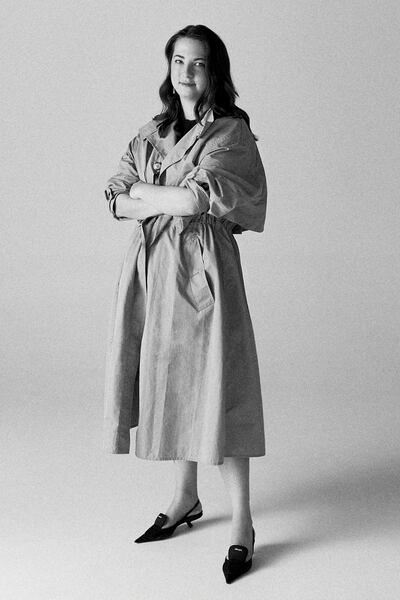
Nensi Dojaka
Dojaka established her eponymous brand after graduating from Central Saint Martins, with her experience in lingerie identifiable in her mini-dresses and intimates. In 2021, she won the LVMH Prize, with her signature black mini dress ranking in Lyst’s Top 10 Hottest Products. Nensi Dojaka stockists include Farfetch, MatchesFashion and Luisaviaroma.
What does London Fashion Week mean to you?
London is the only place that really spotlights and gives a chance to upcoming brands. I’m lucky to be here for that reason. It’s nurturing. People connect with the brand better when they see things on Instagram, on models — it’s easier for people to want to buy something or want to engage with something when they see it on other people.
How has your business model evolved?
At the start, it was a much smaller scale and I was working only at the studio. Now, I work with a factory in Italy and much of the development is done there. I do the designs, the drapes and everything, and then they will create the first prototypes. So, there are more people involved and it’s just a different way of working.
[For] the development part, I still do a lot on the mannequin, but then [...] all the patterns before production are digitised and all the grading and everything is done digitally. It makes things quicker and more accurate, and now that the production is bigger, [technology] is essential.
What key challenges and opportunities have recently arisen for your business?
Covid started just after I established the brand, so that was a difficult period. Then there was Covid mixed with Brexit, and now we have inflation. As a young brand, you can’t really increase prices as easily. [However,] the main problem for me is counterfeits — there are a lot of them — but that is just going to happen.
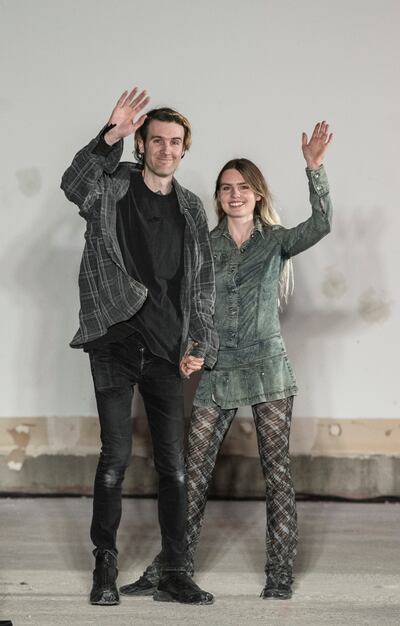
KNWLS
Charlotte Knowles and Alexandre Arsenault first founded their label in 2017 after meeting at Central Saint Martins. The brand has expanded its offering from underwear and corsetry to include womenswear, accessories and footwear, and rebranded from ‘Charlotte Knowles’ to KNWLS in 2021. The brand first showed at London Fashion Week in 2018 as a part of Fashion East, and counts Ssense and Farfetch as stockists.
What key challenges and opportunities have arisen for your business?
AA: We decided to trademark quite early on in the brand, and we encountered problems with trademarking in America. We had to rethink how the brand was going and if we wanted it to be just about Charlotte’s name. The team is as important as us, so we didn’t want it to just be about Charlotte or [me].
CK: I also didn’t realise, when we started the brand, what it would be to have an eponymous brand, to have your full name attached to something that has the potential to grow quite big. We were super scared to change the name, as we didn’t know what effect it might have on the business and on the brand, but it ended up being a good thing.
AA: In the last couple of seasons, production was [also] a nightmare, and like always, brands and designers are taken advantage of or misunderstood. Stores don’t understand why you are delivering late: they want to cancel orders; they don’t want to accept late products. The factories are telling you they are going to increase their prices. We’re now trying to move quite a few production processes to Portugal for price and sustainability, because the quality and their environmental perspective is quite ahead.
How has your business evolved in recent years?
AA: It has evolved quite a lot since we started the brand, maturing and understanding our customer, understanding where the world is going, trying to differentiate ourselves. The brand started off inspired visually by underwear and we have expanded the range, every season adding a new category. Everyone is doing underwear now, which is still core to the brand, but we don’t want the brand to be stuck in this movement.
What does London Fashion Week mean to you?
CK: It’s a culmination, a celebration and a closure to that season, and it’s an amazing way to promote the clothes in person. With a fashion show, you build up this energy and people are excited about it, and more likely to post about it after.
AA: We’ve done photo shoots twice now and it’s just not the same. You never have the same impact or the same closure. People can see it in person and there’s just a better interaction on social media — there’s so many brands, so much noise, on social media.
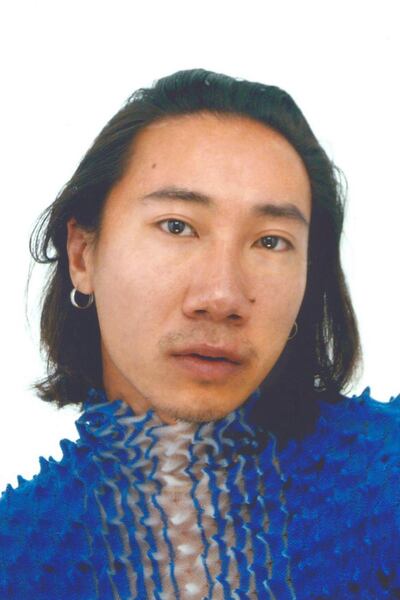
Chet Lo
Lo is a 2020 graduate of Central Saint Martins BA Knitwear course and former intern at Proenza Schouler and Maison Margiela. Showcasing this season through the New Gen showroom, Lo’s work has featured in Vogue, L’Officiel, W, Dazed and more. He recently won the Perfect Emerging Fashion Award by Perfect Magazine.
What does London Fashion Week mean to you?
It’s kind of everything at the moment. I wish I didn’t have to show on-schedule because it’s so fast-paced — I feel like I have barely been able to finish last season — but it’s important from a business perspective. All these young designers need the exposure physically, not just online, to have the showrooms, the buyers and press see your stuff. It’s a boost for big and small companies.
I’m excited to show and create this collection — it is well-rounded. The spikes were fun and everything, but I can’t really imagine a girl wearing it to go grocery shopping. I’m trying to fit the needs of my client and create garments so they can wear them not just at a party but to fulfil every aspect of their life.
How has your business model evolved?
I started off making everything myself in my bedroom. I’d go to a knitting studio, knit the panels, bring them back home, stitch them all up — it was chaotic but I think it was the happiest time of my life.
We all learnt how to do things ourselves — you shoot the clothes yourself, you market yourself. I graduated, and no one was hiring, so I decided to just do it myself.
The pandemic was rough but I think we all learnt how to do things ourselves — you shoot the clothes yourself, you market yourself. I graduated, and no one was hiring, so I decided to just do it myself. I made a bunch of jumpers, put them on Instagram to pay rent, and it took off from there. We got offered this beautiful residency at The Standard, and now, it’s a studio.
What key challenges and opportunities have recently arisen for your business?
It was a cute idea to start a business and really scary to actually make it. All of a sudden, I needed to register my company, create a business account, get a bookkeeper, create cash flow projections every month. Production is a nightmare, especially with lockdowns in China. I want to order yarn and [the store] hasn’t received the raw materials from China. I have five stores waiting for this product.
I make my fabric myself. I constantly feel behind. But I realised I have to relinquish control. If I can’t meet the deadline, I can’t meet the deadline and it will not be my fault because I will push as hard as I can. That’s all I can do. It’s about learning to think on your feet and adjusting how to make stuff, but it’s been really fun.
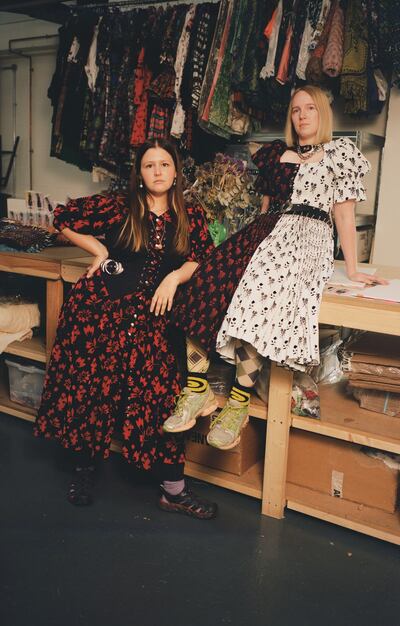
Chopova Lowena
Emma Chopova and Laura Lowena met at Central Saint Martins in 2011, and began collaborating on a joint master’s course in 2015. The designers launched the brand in 2018, inspired by Chopova’s Bulgarian and Lowena’s English heritage. The brand seeks to modernise traditional textiles and crafts, and employs female artisans in Bulgaria. With sustainability at its core, the label is carried by stores like Browns and Farfetch.
How has your business model evolved?
EC: In a way, it’s very much the same and completely different. We have a great factory that is solely dedicated to our brand, and everything is thought through and made nicely. We feel like it’s important to look back, to improve the core product — the skirt — to make sure it is well-made, that it is going to last. I do that every season at the factory.
An important part of the way that we want to do business is introducing categories slowly, when we feel it’s right and there is a space and a need for them. We also like to listen to the feedback from buyers and we have had a few mentor-like figures on the buying side.
LL: [At] Saint Martins, you have the freedom to do whatever you want and you are encouraged that the crazier, the better. [But] it has to be wearable and it has to last. Otherwise, what’s the point of doing it? It is a hard reality check, figuring out how to balance that. But it is a challenge we enjoy, and we still design crazy things.
What key challenges and opportunities have arisen for your business?
EC: Sustainability is our biggest core value. It’s harder as you scale, but we still try to do it with every new thing we introduce. We think about ethical production and [...] upcycling, using recycled fabric, cutting down on shipping. We try to get recycled fibre textiles from Europe, from Turkey, from places close to Bulgaria to have some chance at making something which is actually sustainable.
What does London Fashion Week mean to you?
LL: We have done a couple of shoots, lookbooks and videos, but the chance to bring everyone together in one space and actually see the clothes is going to have a completely different feel. Our show also gives us the opportunity to do the pieces which aren’t super wearable but that we really want to do.
EC: Our home is London [and] it has definitely defined the aesthetic of the brand as well. [Fashion Week] is more about your business and the way that your brand is perceived. It brings us on to a different kind of platform, and to show people [our work] in a more personal way.
Of course, I care about what’s going to come out of fashion week. But I think that, constantly, every single day, you care about everyone else and what everyone’s going to like. We have both wanted a fashion show our entire lives, and now we get to have one, I want it to be exactly what we want.
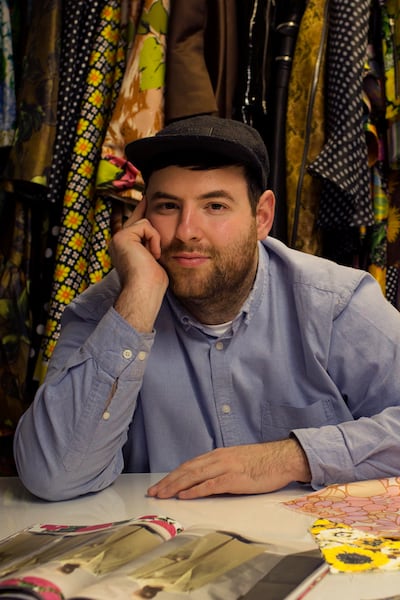
Richard Quinn
Quinn worked at Christian Dior and Savile Row before launching his eponymous womenswear label, specialising in printed textiles and innovative fabrications, in late 2017. Quinn won the inaugural Queen Elizabeth II Award for British Design in 2018. His brand is stocked at MatchesFashion and Farfetch.
What does London Fashion Week mean to you?
I always like the atmosphere and the moment of the show. We obviously do the shows as they look beautiful online and offline, but it’s trying to [create] that live experience, whether it’s a set, a smell, the lighting — an emotional type of thing.
I also love seeing the clothes go from a show to the red carpet. The reach of that overarcs any show we have done before, especially in America or Asia. If an iconic person [wears the brand] that many people look up to, people suddenly become obsessed with you. Like Cardi B — if she wears anything, you will have a huge traction of people stampeding into our pages.
How has your business model evolved?
Initially, it started with me setting up the textile side of the company. We still consult for other people and print production runs and samples — we do big houses in London like JW Anderson and Burberry, and we do a print service for anyone who wants it.
We sourced all this great technology from Epsom, with state-of-the-art machines that you tend to only get in the textile districts of Italy. We can do things so quickly, like strike off onto fabric in 10 or 15 minutes. You don’t have to wait weeks for samples to come back and forth. To test things and react quickly is quite a luxury.
This was basically the set up for my own company. We were utilising every inch of the space that we had, as well as creating all these collections, and it grew from there. Then the wholesale, and our collaborations, grew alongside the print side and they run in tandem now.
The brand hits many different types of people — some will contact us who want a bespoke sofa or homeware, or they come for our bespoke made-to-measure service as well. Then, our private client business is a huge market for us — dresses that people would never know we have made are out there, especially in the Middle East. There’s a huge market there that we’re trying to cater to, and in the future, there’s perfumes. The overall goal at the end — the lifestyle.
What key challenges and opportunities have recently arisen for your business?
You have all the buzzwords, especially in the pandemic, with people trying to figure out how people are going to live their lives. [...] We adapted, did new product categories.
We have just moved to a new space with separate departments, which is much bigger, so it’s easier to develop ideas without having to pack them away every day. So now, we are equipped to tackle all the opportunities that we have had before, [like] our own online e-comm. We want to do it right and I feel like we are nearly there with that.
This is a sponsored feature paid for by Mailchimp as part of a BoF partnership.
From where aspirational customers are spending to Kering’s challenges and Richemont’s fashion revival, BoF’s editor-in-chief shares key takeaways from conversations with industry insiders in London, Milan and Paris.
BoF editor-at-large Tim Blanks and Imran Amed, BoF founder and editor-in-chief, look back at the key moments of fashion month, from Seán McGirr’s debut at Alexander McQueen to Chemena Kamali’s first collection for Chloé.
Anthony Vaccarello staged a surprise show to launch a collection of gorgeously languid men’s tailoring, writes Tim Blanks.
BoF’s editors pick the best shows of the Autumn/Winter 2024 season.